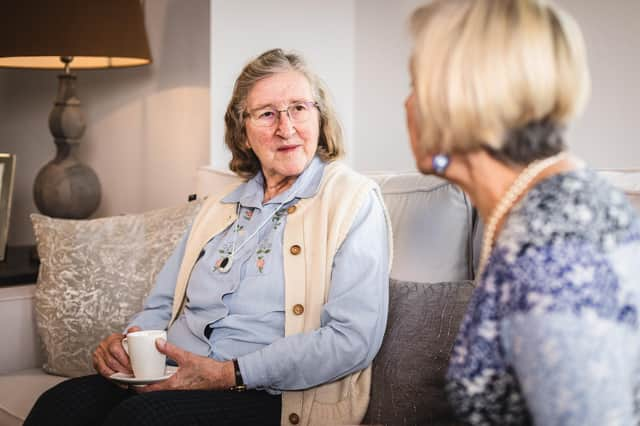Are you or a loved one at risk of a fall?


Not only can falls result in fractures and sustained injuries, but they can also have a long-term effect on your confidence, impacting independence.
With some careful thought and preparation, however, falls can be prevented, says Taking Care’s team of independent living advisors.
The growing risk of falls
Levels of physical activity have fallen as a result of the COVID-19 pandemic. This is particularly true in the over 65s, where there has been a large decrease in strength and balance activity leading to an increase in what’s known as ‘deconditioning’ - a change in physical fitness due to inactivity.
The Department of Health and Social Care reports the immediate outcome of deconditioning is likely to be seen in an increase in falls. Whilst this concern exists, the risk of falling doesn't have to be an inevitable part of ageing. By taking action to improve strength and balance, you can reduce the risk of falling before an accident occurs, helping you or your loved ones remain safe and independent for longer.
Understanding the causes of falls
There are some important areas to focus on that will help reduce the risk of having a fall.
Frailty is a key contributory factor in falls. This is your resilience or ability to recover from illness and injury and presents issues like reduced muscle strength and fatigue. Older adults classified as frail are 3.6 times more likely to have a fall than those who are not frail. Yet, it’s possible to slow and even decrease fragility through exercise and diet, which in turn can reduce the risk of a fall, and improve quality of life
Between 30%-50% of falls are due to environmental causes, such as poor lighting and slippery floors. Some simple checks and modifications can help fall-proof the home and make it a safer environment.
Another key factor is worrying about falling, perhaps following a recent fall or illness, which can leave you feeling weak and unsteady. This is turn can lead to a decline in physical activity, which can have a detrimental effect on maintaining strength and balance. This can result in a vicious cycle of fear, inactivity, loss of strength and a greater likelihood of falling.
Solutions to help prevent a fall
Understanding the causes of falls and the risks involved will go a long way to ensuring that you or a loved one avoids unnecessary falls at home or out-and-about. There are also solutions, such as fall alarms and preventative technologies, that can help reduce the risks and ensure that, if you do fall, you can get help more quickly.
Taking Care can support you or your loved one with recommendations to reduce the risk of falls and help you stay safe and independent at home for longer. We offer a range of personal alarms that alert our 24-hour Emergency Resolution Team when a fall is detected.
Go online or call to speak to one of our Independent Living Advisors and get your FREE Falls Prevention Guide, to learn how a personal alarm can give peace of mind to you and your family.
Tel: 0800 678 3918, or for more information visit taking.care/reduce-falls.